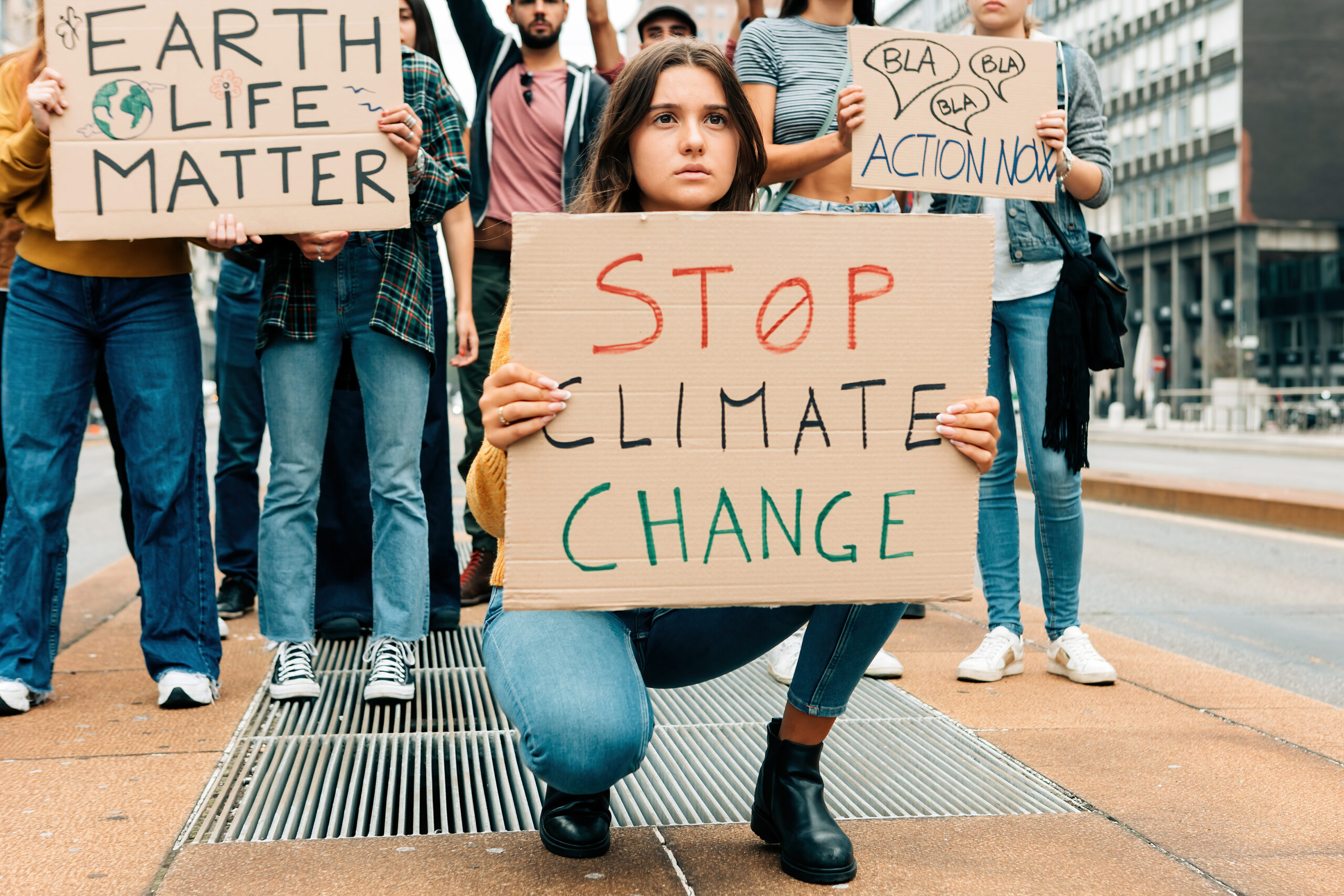In recent years, awareness of climate change has surged, and with it, a new form of anxiety has taken hold: climate anxiety. This emotional response, characterised by a mix of fear, worry, and a sense of helplessness about the future, is increasingly common, particularly among younger people who feel a strong responsibility for the planet’s future. According to the Office for National Statistics (ONS), three-quarters of adults in Great Britain worry about climate change, with younger generations feeling particularly affected.
While concern for the planet is understandable, this worry can sometimes overwhelm individuals, impacting mental health and wellbeing. Research from the ONS shows that more than half of adults in Great Britain report feeling sad, anxious, angry, powerless, helpless, and even guilty about climate change. Additionally, 45% of respondents say their feelings about the climate crisis negatively affect their daily lives, and 83% feel that humanity has failed to care for the planet (Hickman et al). In this post, we’ll explore ways to support mental health in the face of climate anxiety, offering strategies to transform these complex emotions into motivation for positive action.
Understanding Climate Anxiety and Its Impact
Climate anxiety, also known as eco-anxiety, goes beyond general worry and includes persistent fears about the planet’s future, grief over environmental destruction, anger at inaction, and sometimes even guilt about personal contributions to environmental harm. The ONS data highlights the pervasive nature of these feelings, with 75% of people stating that they find the future frightening, and 45% reporting that these feelings disrupt their daily lives and functioning (Hickman et al).
Unchecked, this form of anxiety can lead to cycles of negative thoughts and feelings, especially with constant media coverage of climate-related crises. However, by learning to manage these emotions, individuals can remain resilient and committed to climate action, without compromising their mental wellbeing.
Recognising the Signs of Climate Anxiety
Knowing the symptoms of climate anxiety is the first step toward addressing it effectively.
Some common signs include:
Persistent Worry:
A frequent sense of dread or worry about environmental issues and the long-term future of our planet. This worry can be difficult to shake, often occupying a person’s thoughts throughout the day.
Feelings of Helplessness or Frustration:
Many individuals feel powerless or frustrated at what they perceive as inadequate action against environmental issues. This can lead to a sense of futility, where personal efforts feel insignificant in the face of larger systemic challenges.
Physical Symptoms:
Climate anxiety doesn’t just affect mental health; it can manifest physically, too. Some people experience fatigue, headaches, muscle tension, or even disrupted sleep patterns due to constant stress and worry over environmental issues.
Increased Irritability or Sadness:
Exposure to climate news and media coverage can provoke strong emotional reactions. Many people find themselves more irritable, sad, or disheartened when reminded of the environmental challenges we face, feeling burdened by the weight of these concerns.
Avoidance Behaviours:
In some cases, people may cope by avoiding news or disengaging from conversations about the environment. This type of avoidance can provide short-term relief but may prevent individuals from addressing their underlying anxieties.
Identifying these symptoms is an important first step. By recognising these signs, people can begin to take steps—such as seeking support, connecting with like-minded communities, or engaging in meaningful environmental action—to better manage their climate-related stress.
Supporting Mental Health in the Face of Climate Anxiety
To address climate anxiety effectively, it’s essential to recognise it as a valid emotional response to real challenges. Here are several ways to support mental health while remaining engaged in climate solutions:
- Acknowledge and Validate Emotions
The ONS data reveals that over half of people in Great Britain feel emotions like sadness, helplessness, and anger about climate change. Recognising these shared emotions is key to managing them effectively. Talking about these feelings with friends, family, or support groups can offer a safe space for validation and help people feel understood.
- Engage in Environmental Activism at Your Own Pace
Taking action, even on a small scale, can counter feelings of helplessness and promote a sense of purpose. Volunteering, reducing waste, or supporting sustainable initiatives can provide a sense of control. According to the ONS, 57% of people have tried to reduce their energy consumption as a form of climate action, with others choosing sustainable transport options like walking or cycling. Knowing that one’s efforts contribute to a cause can help manage climate anxiety and foster hope.
- Limit Media Consumption
In today’s world, excessive exposure to climate news can overwhelm people and heighten anxiety. Hickman et al notes that over 45% of people feel that their climate worries negatively affect their daily lives. Limiting news consumption to specific times or following solution-focused environmental sources can create a more balanced perspective.
- Practise Mindfulness and Self-Care Techniques
Mindfulness can help manage climate anxiety by promoting calm and bringing focus to the present. Self-care activities like meditation, nature walks, and creative hobbies can reduce stress. Spending time in nature, for instance, has been shown to boost mental health and provide a soothing counterpoint to climate-related concerns.
- Educate Yourself in Moderation
Knowledge is empowering, but it’s essential to approach it at a manageable pace. Educating oneself about climate science and positive climate actions can help reduce feelings of helplessness, but overconsumption of information may fuel anxiety. A balanced approach to learning can support climate engagement without creating overwhelming stress.
- Support and Connect with Others
Connection with others can be a crucial element of resilience. According to the ONS, 30% of respondents find it helpful to talk about their climate concerns with others. By joining local environmental groups or online communities, individuals can feel supported, stay hopeful, and engage in collective action.
- Seek Professional Help If Needed
For those whose climate anxiety interferes with daily functioning, professional support can be invaluable. Therapists trained in eco-anxiety or climate-focused mental health can help people manage their feelings in a structured way, using methods like Cognitive Behavioural Therapy (CBT) to address persistent climate worries.
The Role of Organisations and Communities in Supporting Climate-Anxious Individuals
Climate anxiety is deeply personal, but organisations and communities can play a vital role in providing support. Workplaces, schools, and community groups can create environments where individuals feel comfortable discussing climate concerns and can access support for managing eco-anxiety.
- Educational Initiatives: Offering workshops or information sessions on climate science can help reduce fear and promote solutions. Awareness programmes that emphasise positive actions offer individuals a constructive outlet for their anxiety.
- Mental Health Resources: Employers and institutions can provide access to mental health resources, such as counsellors trained to address eco-anxiety. When individuals feel supported in their concerns, they’re more likely to remain engaged in solutions rather than becoming overwhelmed by worry.
- Encouraging Sustainable Practices: Organisations can create a culture of climate resilience by implementing sustainability initiatives and encouraging eco-friendly habits. In doing so, they can help individuals feel positive about their future and their contributions to climate solutions.
Together, these efforts help build a supportive framework, empowering people to channel their concerns into constructive action.






